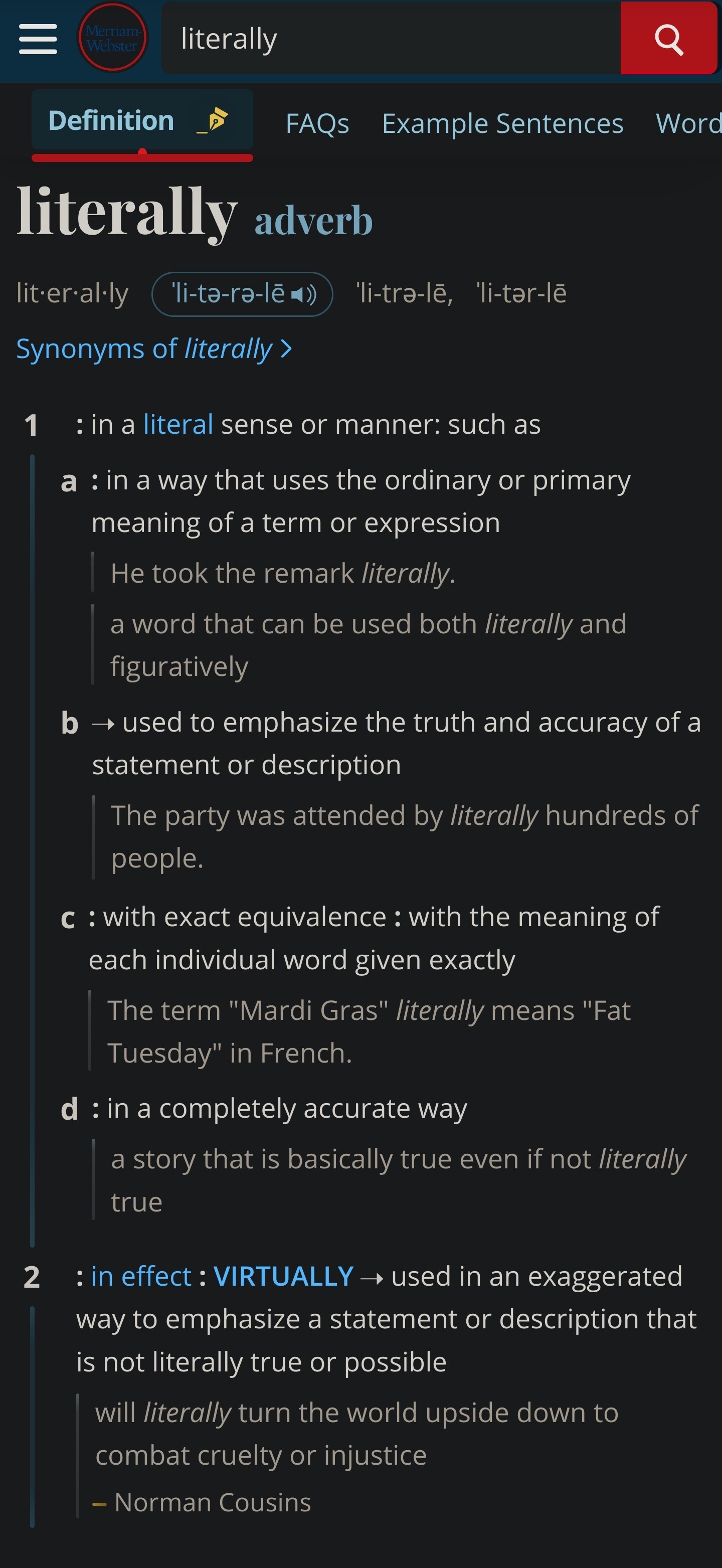Merriam Webster is a descriptive dictionary. They don’t tell you how words “should” be used, they say how words are used.
Using literally as an intensifier goes back literal centuries. The earliest written citation we’ve found of that usage goes back to 1769. It can be found everywhere from Dickens to Brontë.
It’s also hardly the first word to go on a similar path towards becoming an intensifier. Very originally meant “genuine”, really meant “in fact”, absolutely meant “completely”, etc.
But who complains about sentences like “I was really bored to death”, or “I was absolutely rooted to the ground”? Does saying “it’s very cold” just mean “it is a genuine fact that it is cold”?
Literally still means what it means. You can’t use literally to mean “yellow”, for example. People aren’t generally confused when they come across the word.
I don’t see any comments of people taking issue with it. But words do mean things, and some people like to speak with precision.
Words apparently don’t mean things anymore, Merriam Webster added a new definition for “literally” this year
Merriam Webster is a descriptive dictionary. They don’t tell you how words “should” be used, they say how words are used.
Using literally as an intensifier goes back literal centuries. The earliest written citation we’ve found of that usage goes back to 1769. It can be found everywhere from Dickens to Brontë.
It’s also hardly the first word to go on a similar path towards becoming an intensifier. Very originally meant “genuine”, really meant “in fact”, absolutely meant “completely”, etc.
But who complains about sentences like “I was really bored to death”, or “I was absolutely rooted to the ground”? Does saying “it’s very cold” just mean “it is a genuine fact that it is cold”?
Literally still means what it means. You can’t use literally to mean “yellow”, for example. People aren’t generally confused when they come across the word.